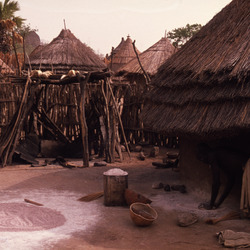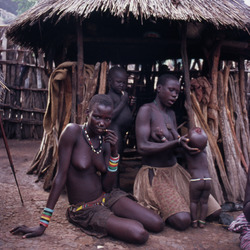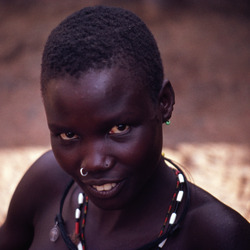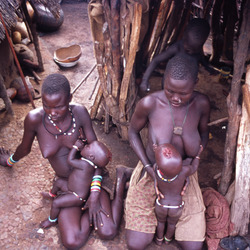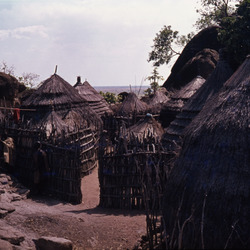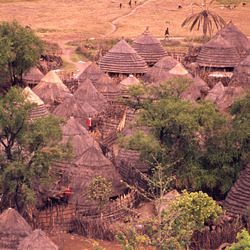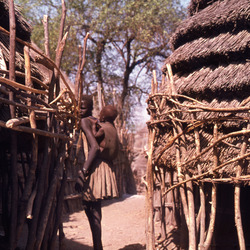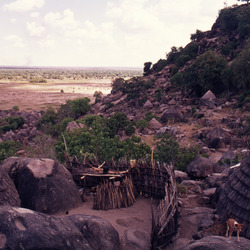Lineage system 20
Each village was divided into three to six geographical patrilineages, ‘tunge’, with names. A ‘tung’ was the group of people associated with a common ancestor, who could be a great-grandfather in an unbroken male line. The right to land for building a house in a village, and the right to land for cultivation on the plains outside the villages were allocated through the ‘tung’.
Thick fences mark a family’s compound and narrow streets between fences marked the parts of ‘tunge’.
A father and his children are the smallest span of a lineage. All descendants of a known ancestor in a male line over four generations can make up a unity of relatives. Sacrifices to the shrine of this ancestor require the presence of representatives of every segment of the lower order, in order to reinforce the jural kind of ‘tunge’.
On the night of each full moon, girls come together and dance. Boys hang out nearby and try to make eye contact with their favorite girls. When they are dating, the elders of ‘tung’ get involved to discuss a possible biological relationship between the couple. Possible kinship relations on the female lines of the girl and the boy need to be sorted out before the elders can bless the young couple. When the couple is ready, negotiations over bride wealth will constitute the announcement of the relationship. This will involve family, the patrilineage as well as the lineages on the maternal side. The negotiations may last years and bind relationships through claims in livestock. A man will generally be given access to land by his in-laws, but also has a right to build a house and cultivate on the land of his father’s lineage.
Case: Ayo was my neighbor. She continued to live with her elder sister and brothers in the compound of her father and mother after she had a baby. Her future husband worked on the fields of Ayo’s father for some seasons, proving his ableness as a husband. When Ayo agrees, the couple may after some years build a house and cultivate their own field on the land of Ayo’s husband’s ‘tung’ in the neighboring village.
Ayo’s son may grow up in the compound of his mother’s brothers. He will have duties and obligations related to his father’s family and lineage, but will only help his mother’s family as he wishes. The relationship to his mother’s family (Mo Br - ‘nera’) is characterized as a mild and ‘joking relationship’ compared to the rules regarding how he should behave toward his relatives in the patrilineage. His father, who lives on and cultivates the land of his in-laws, has rules of avoiding his wife’s family. When cultivating, he will not work together with his wife’s family, but dig a different part of their field.
The lineage system organizes and unites people on the basis of descendance.
